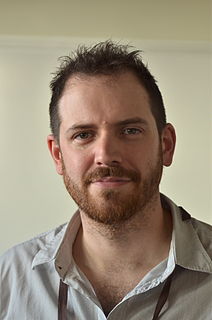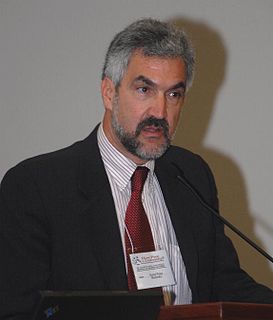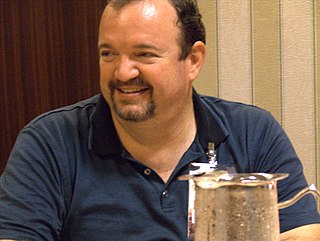A Quote by Eliza Griswold
I was surprised by the level of sophistication of the Special Operation forces. Among them were anthropologists and PhD candidates. I felt because I understand the patterns of nineteenth-century jihad in West Africa that I was definitely going to be more advanced than they were in comprehending what the militant rallying cry was.
Related Quotes
Reading a novel after reading semiotic theory was like jogging empty-handed after jogging with hand weights. What exquisite guilt she felt, wickedly enjoying narrative! Madeleine felt safe with a nineteenth century novel. There were going to be people in it. Something was going to happen to them in a place resembling the world. Then too there were lots of weddings in Wharton and Austen. There were all kinds of irresistible gloomy men.
More girls were killed in the last 50 years, precisely because they were girls, than men killed in all the wars in the 20th century. More girls are killed in this routine gendercide in any one decade than people were slaughtered in all the genocides of the 20th century. The equivalent of 5 jumbo jets worth of women die in labor each day... life time risk of maternal death is 1,000x higher in a poor country than in the west. That should be an international scandal.
I wouldn't say the anthropologists were making art, but they were definitely justifying their practices with very personal reasoning, passion, and they were also experimenting with form. There was a sense of trying to be as sincere as possible, whether you were investigating something far away from you or very close.
Anti-Islamist Muslims - who wish to live modern lives, unencumbered by burqas, fatwas and violent visions of jihad - are on the defensive and atomized. However eloquent, their individual voices cannot compete with the roar of militant Islam's determination, money (much of it from overseas) and violence. As a result, militant Islam, with its West-phobia and goal of world hegemony, dominates Islam in the West and appears to many to be the only kind of Islam.
We knew from the beginning the level of commitment needed. We felt honored to work with Stanley Kubrick. We were going to do what it took to do this picture, whatever time, because I felt - and Nic [Nicole Kidman] did, too - that this was going to be a really special time for us. We knew it would be difficult. But I would have absolutely kicked myself if I hadn`t done this.
The weird thing was that I went to Trump rallies thinking I was going to run into militant, right wing, racist people and mostly I didn't. That should have been a clue to me. The people I talked to were not, on the surface level, crazy. They were quite nice, quite normal, employed, and actually were wealthier than the press at that time would have led us to believe. At that time, the narrative was that these were all working poor but these were not working poor. That should've been a clue to me that this was a little bigger than I thought.
I've always been fascinated by the Norsemen, their lives, history and cosmology. The more we study them the more interesting they become... breaking their own stereotypes. We usually think of them as barbarians, but there were aspects to their society that shows a tremendous level of civilization, sophistication and social advance.
I was really interested in 20th century communalism and alternative communities, the boom of communes in the 60s and 70s. That led me back to the 19th century. I was shocked to find what I would describe as far more utopian ideas in the 19th century than in the 20th century. Not only were the ideas so extreme, but surprising people were adopting them.
The thing I'm particularly interested in is natural history. In its heyday, the mid- and late-nineteenth century, when people were going out and gathering the first huge caches of data and trying to understand what was living and growing everywhere, there was such a sense of freshness to that pursuit. It's very exciting.
Livestock adopted in Africa were Eurasian species that came in from the north. Africa's long axis, like that of the Americas, is north/south rather than east/west. Those Eurasian domestic mammals spread southward very slowly in Africa, because they had to adapt to different climate zones and different animal diseases.

































